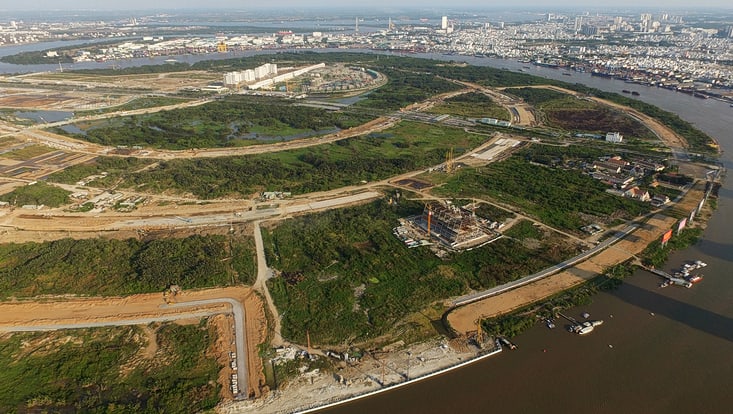and Society (CLICCS)
Climate change adaptationDoing nothing now will cost us more later
27 February 2025, by Stephanie Janssen

Photo: Michael Waibel
The Hamburg Climate Futures Outlook 2024 shows how climate change adaptation can ultimately succeed: through meticulously thought-through measures that are simultaneously climate-friendly and socially just, and which are jointly developed with the public. Beate Ratter is a Professor of Geography and one of the study’s lead authors.
With regard to climate change adaptation, you were once quoted as saying: “By adapting, we can buy ourselves some time; by adapting sustainably, we can buy ourselves a future.” What did you mean by that?
Beate Ratter: My research focuses on how climate change affects small islands. There, sea-level rise is one problem, but a greater one is coastal erosion. I could buy myself some time by, say, erecting a wall on the beach. But over time, it would be undercut by the tide and washed away soon after. In contrast, nature-based measures could be used to gradually make the wave system less dynamic. So, when I protect coral reefs, for instance, lastingly reducing erosion, I’ve bought myself a future.
Getting the public on board, considering all potential impacts of a given measure, developing a strategy and precisely matching it to local conditions – sustainable adaptation takes quite a bit of time. Wouldn’t it be smarter if I quickly erected a floodwall as a preventive measure?
Sustainability has social, economic and ecological aspects. Erecting a wall costs money. You have to invest, need a degree of technical know-how, and have to ensure that you don’t ultimately do more harm than good to the ecosystem.
Your paper draws on nine case studies from around the globe to evaluate the success of local climate change adaptation efforts. None of the regions truly achieved sustainable adaptation. Does that mean the policymakers failed?
Yes, because the state is responsible for regulation. Our economic systems are based on erroneous assumptions. For example, over the past 100 years, we haven’t succeeded in making those who are responsible for the true environmental costs, say, of traffic, actually pay for them. Apparently, there isn’t enough public interest in demanding it.
Could economic development and sustainable adaptation be irreconcilable?
We need to use different arguments. Economic choices need to include the future costs of climate impacts – because if we do nothing now, it will cost us much more in the long run.
How can we overcome this inaction?
The challenge is to be proactive. How many more flooding catastrophes do we need before it sinks in that climate change is a bad thing? Last year we had flooding in Saxony and Lower Saxony, Saarland, Baden-Württemberg and Bavaria, not to mention Austria and the Czech Republic. I’m shocked to see that climate change is barely an issue in the upcoming elections. We can either be painfully reminded of the need for action. Or we can focus on boosting our resilience so that, when the next floods or torrential rains come, we can handle them.
Is there anything the average citizen can do?
Absolutely. Everyone can consider what they want to protect – their home, their neighborhood. Regulars’ tables, clubs, associations and NGOs are a great way to exchange notes and get active – plus, it’s more fun when you work together.
The article was published in the CLICCS Quarterly magazine, the research news from the Cluster of Excellence "Climate, Climatic Change, and Society".


